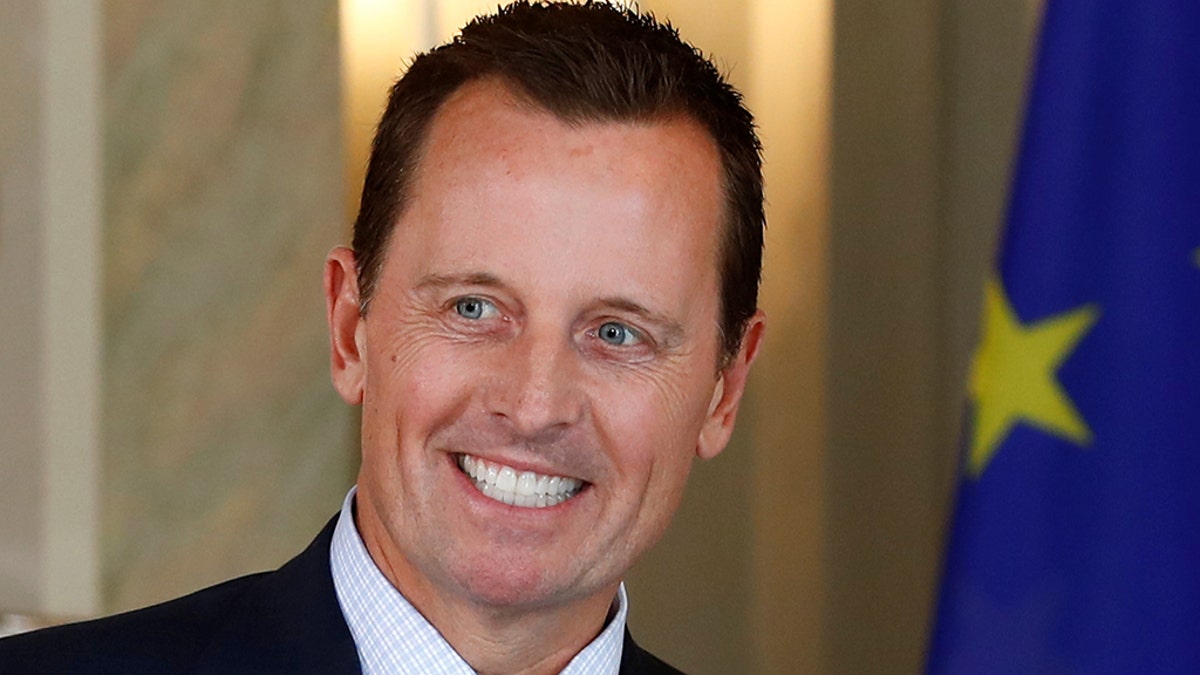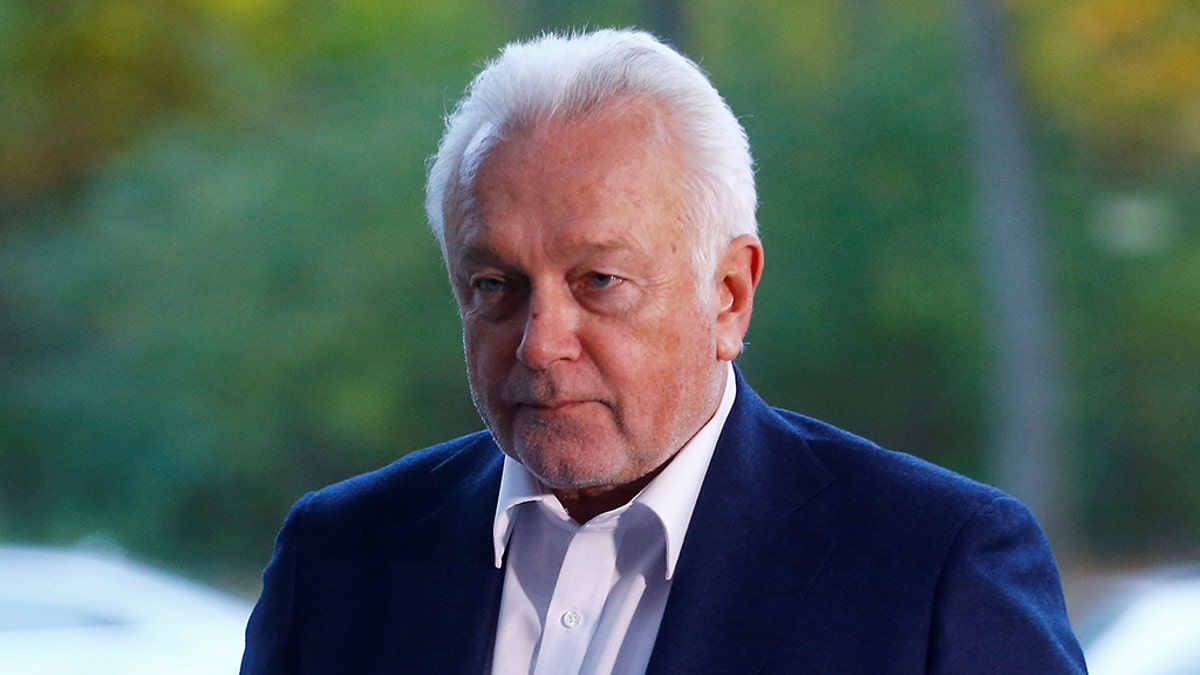
Richard Grenell, a long-time confidant of President Donald Trump has alienated some German politicians and diplomats with his robust approach. (Reuters)
A German politician has called for the expulsion of U.S. Ambassador Richard Grenell, accusing him of acting like a "high commissioner of an occupying power" -- a dispute that comes after Grenell voiced concern that Germany will fall short of its defense spending commitment.
Wolfgang Kubicki, the deputy chairman of Germany’s pro-business Free-Democrat Party, accused Grenell of interference in German domestic affairs and asked the government to declare him persona non grata. Joe Giordono-Scholz, a spokesperson for the U.S. embassy in Berlin, declined to comment.
The 52-year old American envoy, a long-time confidant of President Trump, has rankled some German politicians and diplomats with his robust approach.
"Any U.S. diplomat who acts like a high commissioner of an occupying power must learn that our tolerance also knows its limits," Kubicki told Deutsche Welle last week.
Carsten Schneider, leader of the left-leaning Social Democrats, said Grenell was damaging "trans-Atlantic relations with his repeated clumsy provocations."

Wolfgang Kubicki, the deputy chairman of Germany’s pro-business Free-Democrat Party, has accused Richard Grenell of repeated interference in German domestic affairs (Reuters)
Grenell has demanded that Berlin scrap Nord Stream 2, a planned gas pipeline from Russia, or risk sanctions on the companies involved. He has demanded that German companies stop doing business in Iran, or risk restrictions on doing business in the United States, and has also worked to pressure Germany to ban a Chinese company from building a new communications network, or risk losing access to some intelligence sharing. Kubicki has been linked to that Russia project.
US BRISTLES AT GERMANY'S DEFENSE BUDGET PLANS AFTER IT FALLS SHORT
Earlier this month, Grenell said that Germany’s plans for defense spending within NATO were insufficient, echoing his boss President Trump. In 2014, Germany pledged to move toward spending 2 percent of GDP on defense. Current defense spending is 1.35 percent of GDP, projected to go up to 1.37 percent next year. However, there is consideration of reducing spending in future years.
“That the German government would even be considering reducing its already unacceptable commitments is a worrisome signal to Germany’s 28 NATO allies,” Grenell said in his recent public comments.
“Everyone agrees that we should be spending more on defense,” said Peter Beyer, a member of Chancellor Angela Merkel’s governing Christian Democratic Party and trans-Atlantic coordinator for the government. He cautioned that future defense spending will likely drop to 1.23 percent of GDP by 2024.
US AMBASSADOR CONDEMNS CONVICTED PALESTINIAN TERRORIST'S SPEECH IN GERMANY
Beyer expressed disappointment about the failure to reach the 2 percent commitment and said the lag in defense spending hurts Germany and its NATO partners. According to Beyer, Merkel had no answers when government officials recently asked her how Germany might explain its inadequate defense budget to its allies.
James Carafano, vice president for foreign affairs and security at the conservative Heritage Foundation, defends Grenell for his stance.
CLICK HERE FOR THE FOX NEWS APP
“He has not violated the norms of ambassadorial duties,” said Carafano, insisting that the state of the trans-Atlantic relationship is healthy. “The American ambassador to Germany is not there to serve German interests. He’s there to serve American interests. And pointing out things that are counter to our interests, and theirs, is his job.”
